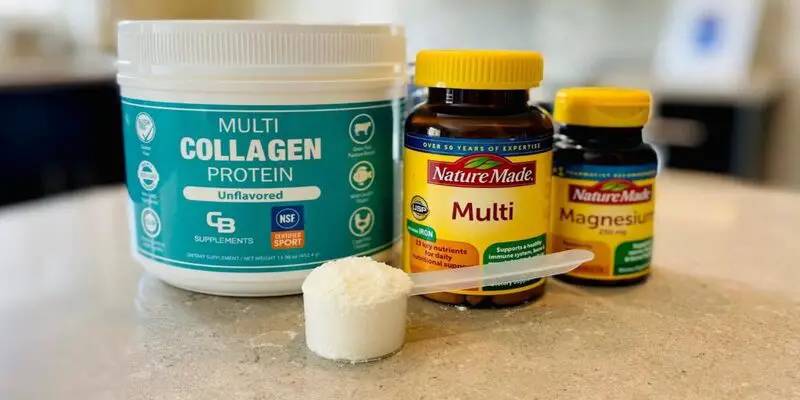Water is the most vital substance for existence. The human body is composed of about 60% of water. Our body has several systems to regulate the fluid and electrolyte balance. Any dysregulation of these systems or any external change can result in dehydration.
Dehydration is defined as a decrease in the body fluids due to internal and external factors.
It is crucial to understand the symptoms and causes of dehydration to avoid it and prevent its adverse complications.
What are the symptoms of dehydration?
Some of the most common symptoms of dehydration are:
- Sunken eyes
- Dry skin
- Light-headedness
- Fatigue
- Feeling thirsty
- Headache
- Dark-colored urine

There are several causes of dehydration. The following are the most common causes of dehydration.
Vomiting:
Vomiting is one of the major causes of dehydration. This is attributed to the fact that vomiting eliminates most fluids and ions in the body that cause fluid and electrolyte imbalance. Significant ions like sodium and potassium, which are responsible for holding the fluids in the body and regulating fluid balance, are also lost. Consequently, the body experiences the symptoms of dehydration. If not treated on time, dehydration can progress and can even prove to be fatal.
Decreased consumption of water:
The most crucial factor in any disease or disorder is always the diet. Often, in winter, people consume less water and other fluids. This results in the decreased fluid content of the body. There is a fluid imbalance, and the bodys normal functions are tremendously affected. As this situation worsens, the symptoms of dehydration begin to appear. It is, therefore, of great importance to drink an adequate amount of water regularly to avoid any complications.
Diarrhea:
As in the case of vomiting, diarrhea also results in the tremendous loss of electrolytes and fluids from the body. As the gastrointestinal system is disturbed, many essential nutrients, minerals, ions, and fluids from the body are eliminated. This results in fluid imbalance and dehydration. It is very important to take ORS or other formulations of salts in case of diarrhea to prevent any adverse outcome from dehydration.
Profuse sweating:
In summer or certain cases, like during strenuous exercise, there is increased sweating. As a result, there is a loss of fluids from the body. Also, as sweat contains several ions and salts, they are lost from the body. The result is, again, the fluid and electrolyte imbalance in the body. So, it is of vital importance to prevent heat stroke in warm weather by consuming an adequate amount of fluids. The appropriate consumption of fluids should also be ensured while doing exercise.
Medications like diuretics:
Diuretics are the group of drugs that are responsible for lowering blood pressure by producing more amount of urine. Diuretics influence the kidneys to remove specific ions and salts from the body. This also results in the elimination of fluid from the body. As a result, the blood volume is lowered, and blood pressure is decreased. However, these medicines can also cause dehydration due to increased fluid loss. It is, therefore, advised to consume ample amounts of fluids to regulate the bodys functions.
High-grade fever:
Fever is a condition that affects almost all the bodys normal functions. There is an increase in the metabolic processes and increased sweating. Also, there is a decreased intake of fluids, and in some cases, polyuria can occur. All these factors ultimately cause the fluid imbalance in the body. The body then begins to show the symptoms of dehydration. Hence, it is crucial to monitor the fluid and electrolyte balance and intervene appropriately to avoid the complications like dehydration.
Polyuria:
Polyuria is a condition that accompanies several diseases. In the case of diseases like diabetes insipidus, hypercalcemia, and Cushings syndrome, there is an increased production of urine content. As a result, there is a loss of fluids and ions from the body. The kidney cannot conserve ions and fluids due to dysregulations caused by these diseases, and there is a very high risk of dehydration if the necessary precautions are not taken to prevent dehydration.
Diabetes mellitus:
Diabetes mellitus is a disease capable of disturbing all metabolic processes occurring in the body. One of the most important symptoms in the triad of diabetes is polyuria. Also, as the metabolic processes are disturbed, there is an electrolyte imbalance. These factors can cause dehydration if fluid and electrolyte balance are not monitored in diabetic patients.
Chronic diseases:
Several chronic diseases like cancer, thyroid disorders, and chronic kidney disease are accompanied by dehydration and the complications of dehydration. There is a disruption of metabolic functions and a loss of appetite. Both of these can ultimately result in dehydration. Regulating diet and maintaining the fluid balance is highly important in such patients.

Infections:
Several infections, like urinary tract infections, can result in increased production of urine and can lead to dehydration. In case of an infection, there may be a fever also, which can cause sweating. Infections are also accompanied by loss of appetite, which further aggravates the situation. All these factors result in dehydration, and if not treated on time, it can lead to severe complications.
Poor function of kidneys:
As kidneys are the main organs responsible for homeostasis in the body, any dysfunction in kidneys can ultimately result in fluid imbalance and, as a result, dehydration. Significantly, in old age patients, the function of kidneys is already disrupted and decreased. This can cause increased elimination of salts and water from the body, causing dehydration. It is crucial to monitor the function of the kidneys in older adults regularly.
Final Note:
Thus, the gist is that fluid balance and homeostasis form the foundation of all the body systems. It is essential to carefully monitor and regulate the bodys fluids by consuming ample fluids throughout the day and maintaining a healthy lifestyle. The above-mentioned are some of the reasons causing dehydration and ought to be prevented.







